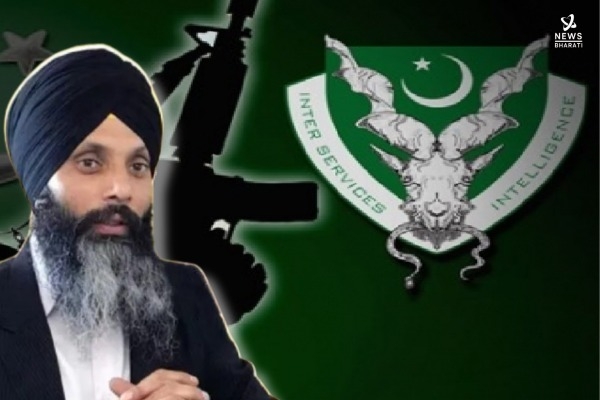NB Explains| Did Pakistan's ISI plot Nijjar's killing to strain India-Canada ties? Take a look at this report-
The Pakistan spy agency had been pressuring him to support gangsters who arrived in Canada in the past two years. Nijjar however, was mainly backing former Khalistani leaders.
Total Views |
Amid ongoing worsening ties between India-Canada, now shocking information has come to light pointing out Pakistan's hand behind the murder of Khalistani terrorist Hardeep Singh Nijjar in Canada.

As per the reports India Today, Pakistan’s Inter-Services Intelligence (ISI) orchestrated the murder of Khalistani terrorist Hardeep Singh Nijjar in Canada to strain ties Indo-Canadian ties.
The Pakistan spy agency had been pressuring him to support gangsters who arrived in Canada in the past two years. Nijjar however, was mainly backing former Khalistani leaders.
Hardeep Nijjar was shot dead by unidentified assailants in Canada’s British Columbia while he was inside his car. According to sources cited by India Today, ISI had hired criminals to pressure Najjar. After eliminating Nijjar, Pakistan is now looking for a replacement for the Khalistani leader and is planning to assemble a group of separatist terrorists in Canada, putting more strain on the relations between India and Canada.
Recently it came to light that, Nijjar had gone to Pakistan to gain "expertise" in arms and ammunition. As per the Intelligence findings, he went to Pakistan in April 2012 even though he was active in the world of crime since 1980. It has been claimed that in Pakistan, he was provided training in handling IEDs by a terrorist. Nijjar had in 2014 planned to carry out an attack on Dera Sacha Sauda Chief Sant Gurmeet Ram Rahim Singh at his premises in Haryana's Sirsa. In 2015, Pakistan's ISI assisted Nijjar in organizing secret training camps for Khalistani extremist groups.
It should be noted that, diplomatic row erupted after Canadian Prime Minister Justin Trudeau recently alleged "potential" involvement of Indian agentsin the killing of Hardeep Singh Nijjar on his country's soil on June 18 in British Columbia. Later, New Delhi rejected Canada's claim as "absurd" and "motivated". India also announced temporarily suspending issuance of visas to Canadian citizens and asked Ottawa to downsize its diplomatic presence in the country.
Interestingly, when the west refused to comment on the issue, government of Pakistan issues the statement over the allegations. Pakistan has gone as far as saying that India’s “network of extra-territorial killings has now gone global.” Pakistan’s Foreign Secretary Cyrus Qazi has asked the international community to wake up to the ways of a country that is “a supposedly indispensable ally.”
Meanwhile, on Tuesday, India asked the United Nations member states not to allow "political convenience" to determine responses to terrorism, extremism and violence. Addressing the 78th UN General Assembly session, External Affairs Minister S Jaishankar also said respect for territorial integrity and non-interference in internal affairs cannot be "exercises in cherry picking" as he asserted that the days when a few nations set the agenda and expected others to fall in line are over.


